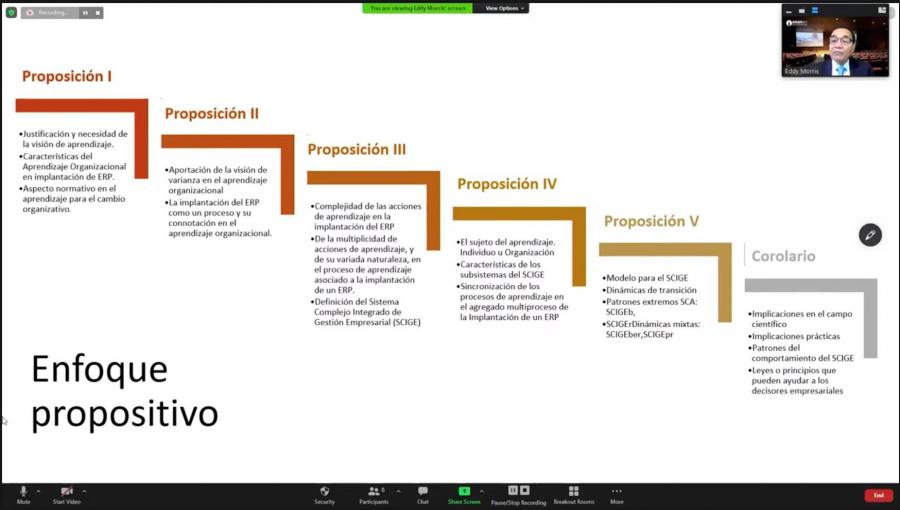EDDY MORRIS PH.D., TELLS US ABOUT HIS RESEARCH AT THE INNOVA INSTITUTE

Eddy Morris is the Director of MBA ESAN as well as Director of the Master in Information Technology Management and Project Management at ESAN. Furthermore, he is also the Head of the Academic Area of Operations and Consultant for companies and international organizations.
The thesis proposes a complex model called Complex Integrated Business Management System (SCIGE). This research shows that success in implementation is not enough, and both IT innovation and process redesign are necessary as both change organizational structures. One form of investment in information technology is the implementation of an ERP system, however, a large number of projects do not reach the expected goals. This study provides findings on how organizations ensure that investments in information and communication technologies (ICT) offer a positive return in organizational performance, all of this applied to the implementation of an ERP.
How was qualitative research conducted:
A comparative and cross-sectional study of multiple cases was used and applied to four different industries Peruvian companies, which implemented an ERP seeking to improve their productivity.
A double stage of perspectives was proposed as a theoretical framework of the research. In the first place, the resource-based view and its derivative of dynamic capabilities were used to understand how an organization adapts to situations of rapid and dynamic change within a competitive environment. In the second stage, the theoretical framework of organizational learning was employed, since the implementation of an ERP may be conditioned by how the organization learns and, at the same time, benefits from the learning that the organization can have throughout its implementation period.
Research proposition:
Eddy Morris proposes to consider the implementation of an ERP as a change situation problem between the states before and after the implementation. Furthermore, the study shows, that in addition to the existence of organizational capabilities, how the organization is able of learning these capabilities must be taken into account, this means to consider organizational learning in the implementation of an ERP. With that, the implementation of an ERP involves the interaction of three systems, the organizational learning system, the software implementation system itself and, finally, the system that reflects the organizational impact.
Contributions:
The author explains the relevance at an academic and business level as its contribution is that the implementation of an ERP requires a holistic perspective that takes into account the learning processes that are generated during the implementation of the ERP. Hence, transition dynamics that allow a successful ERP implementation are proposed.
The academic contribution is complemented by a set of good practices that can help managers make better decisions when carrying out ERP implementation projects, especially in the current era where companies must face the challenge of digital transformation.